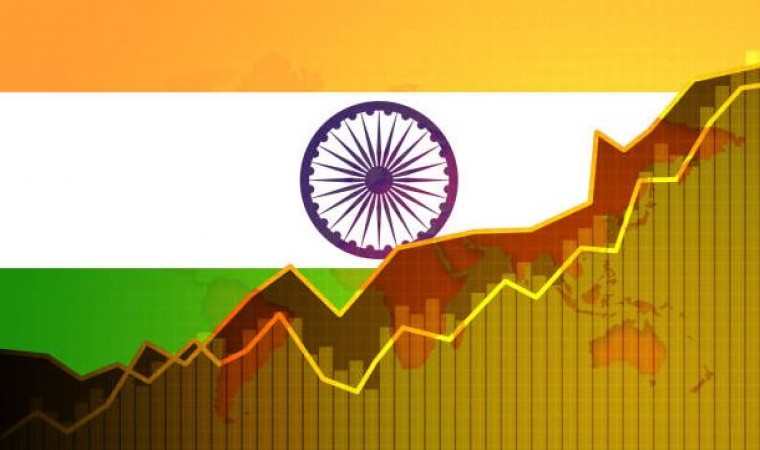
Introduction
India, known for its rich history and cultural diversity, has emerged as one of the fastest-growing economies in the world. With a population of over 1.3 billion people, the country presents immense potential for economic growth and development. In this article, we will explore the key factors driving Indian economic growth, the challenges it faces, and the strategies employed to overcome them.
Understanding India's Economic Growth
India's economic growth has been remarkable in recent years, averaging around 7% to 8% annually. This growth has been driven by various factors, including a young and growing workforce, improved productivity, and progressive government policies. However, several challenges hinder its full potential, such as income inequality, poverty, and inadequate infrastructure.
Factors Driving Economic Growth in India
Infrastructure Development
Infrastructure development plays a crucial role in fostering economic growth. India has recognized this and has been investing heavily in building roads, bridges, ports, airports, and power plants. These developments enhance connectivity, facilitate trade, and attract foreign investment.
Manufacturing and Industrialization
The manufacturing sector has emerged as a significant contributor to India's economic growth. The government's "Make in India" campaign aims to boost manufacturing and transform India into a global manufacturing hub. This sector creates employment opportunities, increases exports, and stimulates economic growth.
Service Sector Expansion
The service sector, particularly information technology (IT) and business process outsourcing (BPO), has been a key driver of India's economic growth. India is renowned for its skilled workforce in these sectors, attracting multinational companies to set up operations in the country. This expansion has led to job creation and increased foreign exchange earnings.
Technological Advancements
Technological advancements have revolutionized various sectors in India. The growth of e-commerce, digital payments, and mobile internet penetration has transformed the way businesses operate. These advancements have increased efficiency, productivity, and innovation, further propelling economic growth.
Human Capital Development
Investing in human capital through education and skill development is crucial for sustained economic growth. India has made significant progress in this area, with initiatives such as Skill India and Digital India. By equipping its workforce with the necessary skills, India can drive innovation and attract investments in high-value sectors.
Challenges to Indian Economic Growth
Income Inequality and Poverty
Despite economic growth, income inequality and poverty remain pressing issues in India. The gap between the rich and the poor needs to be addressed through inclusive growth policies and targeted social welfare programs. By ensuring equitable distribution of resources, India can uplift the marginalized sections of society and foster sustainable development.
Agricultural Productivity
Agriculture continues to be a vital sector in India, employing a significant portion of the population. However, low productivity, inadequate infrastructure, and climate change pose challenges to the agricultural sector. Investments in irrigation, research, and development of high-yielding crop varieties can enhance agricultural productivity and rural livelihoods.
Environmental Sustainability
Sustainable development is crucial to safeguarding India's future. As the country industrializes and urbanizes, there is a growing need to balance economic growth with environmental conservation. Measures such as promoting renewable energy, efficient waste management, and sustainable urban planning are essential for long-term development.
Government Reforms and Policies
The Indian government has been implementing various reforms and policies to address the challenges and promote economic growth. Initiatives like Goods and Services Tax (GST) and Direct Benefit Transfer (DBT) aim to streamline taxation and improve the delivery of subsidies and welfare schemes. These reforms create a conducive environment for businesses and investments.
Initiatives to Promote Economic Growth
Make in India Campaign
Launched in 2014, the Make in India campaign aims to transform India into a global manufacturing hub. It encourages both domestic and foreign companies to invest in India and produce goods locally. This initiative facilitates job creation, technology transfer, and increases the country's exports.
Digital India Initiative
The Digital India initiative focuses on harnessing technology for inclusive growth and digital empowerment. It aims to provide universal access to digital infrastructure, digital literacy, and digital services. This initiative facilitates e-governance, digital payments, and promotes a digitally connected society.
Conclusion
India's economic growth and development have been impressive, driven by infrastructure development, manufacturing, the service sector, technological advancements, and human capital development. However, challenges such as income inequality, agricultural productivity, environmental sustainability, and effective policy implementation persist. Through government reforms, initiatives, and inclusive growth policies, India is striving to overcome these challenges and unlock its full economic potential.
Goldman Sachs Predicts that India Will Hop on United States by 2075
Indian Architecture and Historical Monuments
Suspended "Elon Jet" Twitter Account Finds New Home on Meta's Threads, Sparks Competition